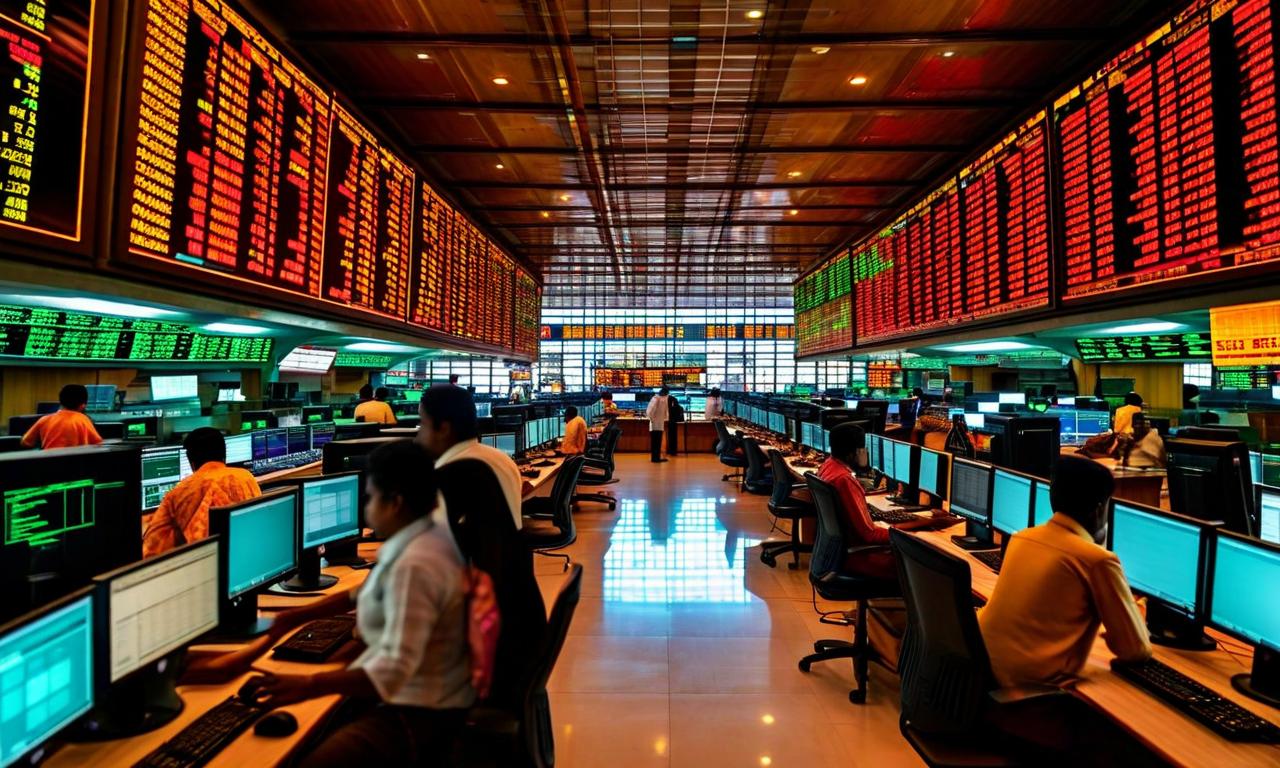Sensex Drops 408 Points, Ending Six-Day Rally as Markets Await Powell's Jackson Hole Speech
The BSE Sensex fell 408 points (0.50%) to 81,598.00, while the Nifty 50 declined 127 points (0.51%) to 24,962.00, ending a six-day winning streak. The financial sector declined 0.40%, with banking stocks down 0.30%. Top losers included ICICI Bank, Adani Ports, HCL Tech, and Asian Paints. HDFC Bank and ICICI Bank dropped 0.50% and 0.80% respectively, while Reliance Industries fell 0.70%. Midcaps gained 0.20%, while small-caps remained unchanged. Investors are cautious ahead of Federal Reserve Chair Jerome Powell's speech at the Jackson Hole symposium and concerns about potential new tariffs under a possible Trump administration.

*this image is generated using AI for illustrative purposes only.
Indian benchmark indices retreated on Friday, halting a six-day winning streak as investors turned cautious ahead of Federal Reserve Chair Jerome Powell's policy remarks at the Jackson Hole symposium. The market's pause reflects growing uncertainty about potential policy shifts and their impact on global economic growth.
Market Performance
The BSE Sensex fell 408 points (0.50%) to close at 81,598.00, while the Nifty 50 declined 127 points (0.51%), ending the day at 24,962.00. This downturn marks a significant shift after nearly a week of consecutive gains in the Indian stock market.
Sector-wise Impact
Several key sectors and stocks contributed to the day's losses:
- Financial Sector: The financial sector experienced a 0.40% decline, with banking stocks down 0.30%.
- Leading Decliners: ICICI Bank, Adani Ports, HCL Tech, and Asian Paints were among the top losers, with their shares falling between 0.60% and 0.80%.
- Banking Giants: HDFC Bank and ICICI Bank saw drops of 0.50% and 0.80% respectively.
- Reliance Industries: The conglomerate's stock declined by 0.70%.
Broader Market Trends
While the large-cap indices faced pressure, the broader market showed a mixed performance:
| Market Segment | Performance |
|---|---|
| Midcaps | +0.20% |
| Small-caps | Unchanged |
This divergence highlights the ongoing trend of large-cap stocks outperforming their mid and small-cap counterparts over the past year.
Global Factors
Market experts have pointed out two key factors influencing investor sentiment:
- Powell's Speech: Anticipation of Federal Reserve Chair Jerome Powell's remarks at the Jackson Hole symposium has led to increased caution among investors.
- Potential Trump Tariffs: Concerns about the possibility of new tariffs under a potential Trump administration are raising questions about future economic growth prospects.
Conclusion
As the Indian stock market takes a breather after a strong rally, all eyes are now on global cues, particularly the outcome of the Jackson Hole symposium. Investors remain watchful of potential policy shifts and their implications for both domestic and international markets. The divergence between large-cap performance and broader market indices suggests a cautious approach by investors, favoring established, liquid stocks in times of uncertainty.



































